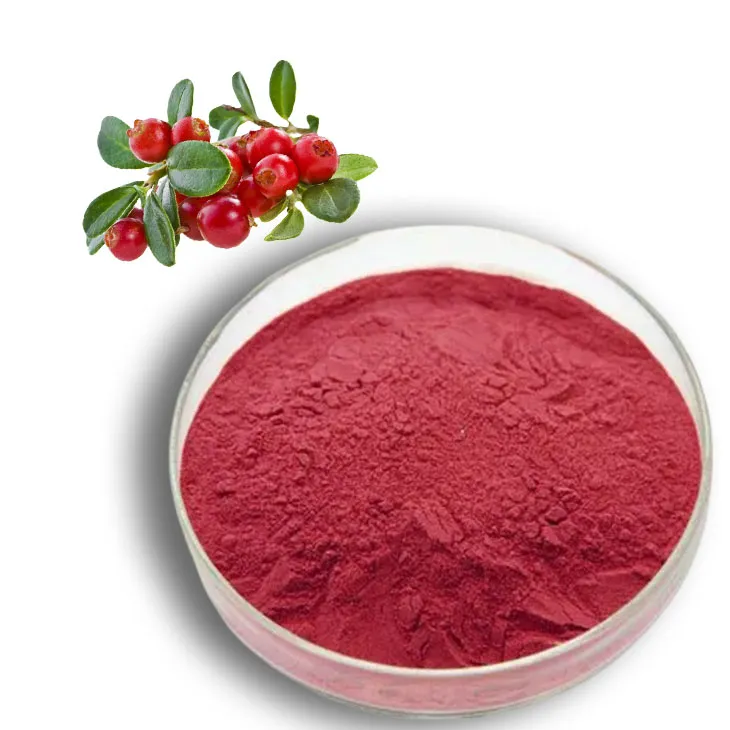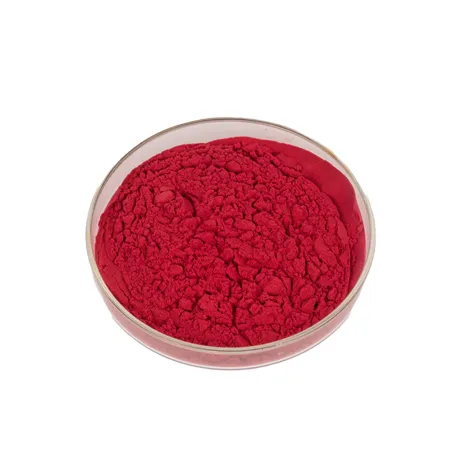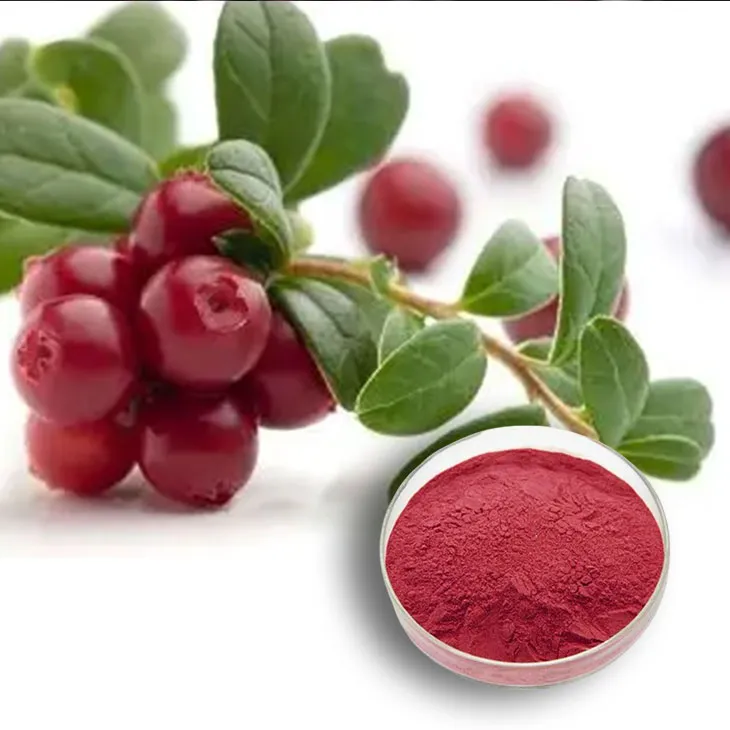- 0086-571-85302990
- sales@greenskybio.com
Cranberry Extract Medication: Uses, Benefits, and Considerations
2025-06-07

Cranberry Extract, obtained from the small, bright-red berries of the Vaccinium macrocarpon plant, has a well-established reputation for its medicinal properties, particularly in North American and indigenous traditional medicine. In the modern era, Cranberry Extract appears in a variety of pharmaceutical forms, including capsules, tablets, powders, and liquids. Its widespread availability has sparked curiosity and scientific investigation, leading to the question: What is Cranberry Extract medication used for? This article explores the principal medical uses of cranberry extract, its proposed mechanisms of action, research-backed benefits, as well as potential risks and best practice recommendations.
Primary Use: Prevention of Urinary Tract Infections (UTIs)
The most thoroughly studied and accepted use of cranberry extract medication is in the prevention of urinary tract infections, especially for women who experience these infections recurrently. UTIs are common bacterial infections affecting the bladder, kidneys, or urethra, often caused by E. coli bacteria adhering to the urinary tract’s lining.
Cranberry extract contains potent plant compounds called proanthocyanidins (PACs), particularly Type-A proanthocyanidins. These biologically active molecules are believed to prevent E. coli from sticking to urinary tract surfaces, which interrupts the growth and colonization process that leads to infection. Importantly, cranberry extract does not act as an antibiotic but works by interfering with bacterial adhesion, making it more likely that bacteria will be flushed out during urination.
Multiple scientific studies and systematic reviews have examined cranberry’s effectiveness in UTI prevention. Earlier research presented mixed results, due in part to variations in the formulations and doses studied. However, more recent high-quality trials and meta-analyses agree that cranberry extract—especially when standardized for PAC content—can significantly reduce the risk of recurrent UTIs in women prone to these infections. Consistency and proper dosing appear to be key for success.

Secondary Uses and Potential Health Benefits
While UTI prevention remains cranberry extract’s main medical application, interest is growing in its other possible benefits:
1. Supporting General Urinary Tract Health
People who do not regularly get UTIs might still take cranberry extract as a preventative measure to support urinary health. Its anti-adhesive effect may help maintain a healthy ecosystem by reducing the risk of bacterial persistence.
2. Antioxidant Activity
Cranberries are rich in antioxidants, especially flavonoids and vitamin C. Cranberry extract supplements deliver these antioxidants in concentrated form, potentially reducing inflammation, contributing to cardiovascular health, and protecting cells from oxidative damage. However, definitive evidence supporting these uses is still limited.
3. Oral Health Promotion
Some research indicates that cranberry extract may decrease oral bacteria’s ability to adhere to teeth and gums, thereby potentially reducing the risk of gum disease and cavities.
4. Gastrointestinal Health
There is preliminary evidence that cranberry extract may help prevent colonization by Helicobacter pylori, a bacteria linked with stomach ulcers and gastric cancer, although further research is needed to confirm these benefits.

Forms and Administration of Cranberry Extract Medication
Cranberry extract is formulated in several convenient forms suited to diverse needs:
- Capsules and tablets: The most common medical preparations, these products typically provide standardized amounts of active compounds.
- Powders: These can be mixed into beverages or food.
- Juice: While popular, commercially available cranberry juices tend to have lower concentrations of PACs and higher sugar content when compared to concentrated extracts or supplements.
Dosing recommendations vary widely depending on the product's PAC content. As a general rule, it is important to follow the product manufacturer’s guidelines or consult a healthcare provider for recommendations.

Limitations and Risks
Despite its popularity and generally recognized safety, cranberry extract medication is not without its limitations:
1. Prevention, Not Cure
Cranberry extract is useful for UTI prevention, but there is little evidence to support its use for treating active UTIs. Anyone experiencing UTI symptoms should consult a physician. Left untreated, UTIs can get worse and cause further complications.
2. Not Universally Effective
While many women with recurrent UTIs benefit from cranberry extract, individual responses vary. Some may not experience meaningful protection. Genetics, lifestyle, and other health factors play a role in efficacy.
3. Drug Interactions
Cranberry extract may interact with certain medications. The best-known risk is with warfarin, a blood thinner, as the extract might increase bleeding risk. Always inform your healthcare professional about any supplements you are taking.
4. Side Effects
At recommended doses, cranberry extract is typically well tolerated. Side effects are uncommon, but high doses may cause mild gastrointestinal disturbances such as stomach upset or diarrhea.

Conclusion
Cranberry extract medication stands out as a well-established, non-antibiotic approach for the prevention of recurrent urinary tract infections, primarily through its unique action of preventing bacterial adherence in the urinary tract. While modern research confirms its usefulness in this area, claims supporting other benefits are promising but preliminary. As with any medication or supplement, cranberry extract should be used thoughtfully, ideally under medical guidance—especially for those with underlying health conditions or those taking other medications. Proper, informed use can help individuals reap the main benefits of cranberry extract, reinforcing its reputation as a valuable tool in maintaining urinary tract health.
- ▶ Hesperidin
- ▶ Citrus Bioflavonoids
- ▶ Plant Extract
- ▶ lycopene
- ▶ Diosmin
- ▶ Grape seed extract
- ▶ Sea buckthorn Juice Powder
- ▶ Fruit Juice Powder
- ▶ Hops Extract
- ▶ Artichoke Extract
- ▶ Mushroom extract
- ▶ Astaxanthin
- ▶ Green Tea Extract
- ▶ Curcumin
- ▶ Horse Chestnut Extract
- ▶ Other Product
- ▶ Boswellia Serrata Extract
- ▶ Resveratrol
- ▶ Marigold Extract
- ▶ Grape Leaf Extract
- ▶ New Product
- ▶ Aminolevulinic acid
- ▶ Cranberry Extract
- ▶ Red Yeast Rice
- ▶ Red Wine Extract
-
Maitake Mushroom Extract
2025-06-07
-
Coix Seed Extract
2025-06-07
-
Withania Somnifera Extract
2025-06-07
-
Buckthorn bark extract
2025-06-07
-
Feverfew Extract
2025-06-07
-
Chia Seed Powder
2025-06-07
-
melatonin extract
2025-06-07
-
Horse Chestnut Extract
2025-06-07
-
Camu Camu Extract
2025-06-07
-
Garcinia Cambogia Extract
2025-06-07





















